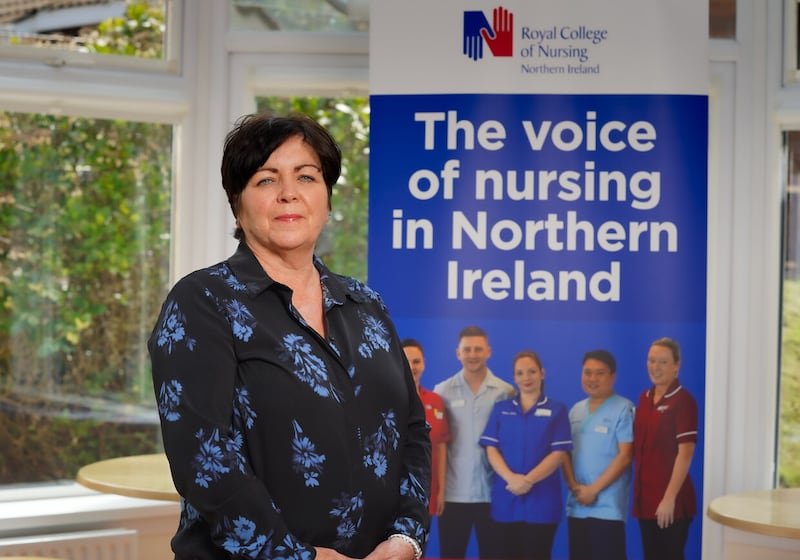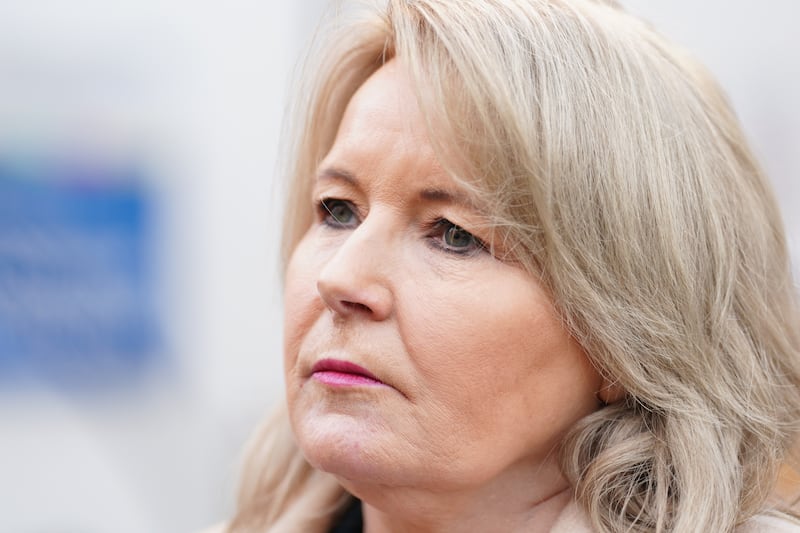THE Royal College of Nursing has called plans to cut nursing student places in Northern Ireland “short-sighted and incomprehensible”.
Pre-registration student nursing places had increased from 712 in 2015/16 to 1,325 by 2022/23, but were cut by 300 last year.
The Health Minister Robin Swann confirmed on Wednesday the places for 2024/25 would remain at 1,025, citing budgetary pressures.
Rita Devlin, Executive Director RCN Northern Ireland, said the department was repeating past mistakes that created a workforce crisis in nursing.
“For years, Northern Ireland suffered cuts in student nursing places which has led to thousands of nursing vacancies over the past number of years. Although we achieved an increase in places in 2020, we are now seeing a reduction in numbers for the second year in a row despite professional advice that the need has remained around 1,300,” she said.
“Following strike action by RCN members in Northern Ireland in 2019 and 2020, the Department of Health put in place a safe staffing framework. An increase in student places of 300 per year was a key part of this framework, and this was beginning to have an impact on the depleted nursing workforce. Not only are we back to where we started but the consequences for patients are likely to be far-reaching.”
- Royal College of Nursing members vote to reject pay offerOpens in new window
- Belfast health trust considering if junior doctors’ strike will delay rollout of multi-million pound patient records systemOpens in new window
- ‘I’ll wake up at 4am thinking is that child safe?’ Belfast social workers strike over ‘extreme staffing pressures’Opens in new window

Warning that previous cuts between 2010-15 had created a nursing workforce crisis “that we have never recovered from,” she said repeating the mistakes of the past was “frankly outrageous”.
She said the health service was now over-reliant on agency staff and internationally educated nurses who are less likely to stay for longer periods of time as there is already a worldwide shortage of nurses, and that storing up expensive problems for the future was not the way to stabilise the health budget.
Mr Swann has said he hoped to increase nursing places this year, “but intensifying budgetary pressures have made that unachievable”.
“Significant progress has been made in recent years to increase our workforce and I had hoped to be announcing further increases to training places today to underpin the ongoing transformation of the HSC but, unfortunately, that is not the case,” he said.
“I have warned that the budgetary position for health would impact heavily on key areas, including training. This is the first confirmation of that highly regrettable reality.
“I will continue to strongly make the case for greater funding for health and social care and can confirm I will be seeking Executive transformation monies and cross-departmental support for investment in training.”
He said that the department’s focus on workforce development over the years had meant a 15.7% increase in whole time equivalent staff across the HSC in Northern Ireland between March 2018 and December 2023, and that “continuing on this trajectory must remain a priority.”
Disappointing news from @healthdpt - no increase in nursing places. This was our chance to train more nurses and close the workforce gap. We need action now! 👩⚕️👨⚕️#Nursing #workforce @RCN_NI @rita_rdevlin29 pic.twitter.com/qcqVpfEyZJ
— Colin McGrath 🇺🇦 (@ColinSDLP) May 8, 2024








